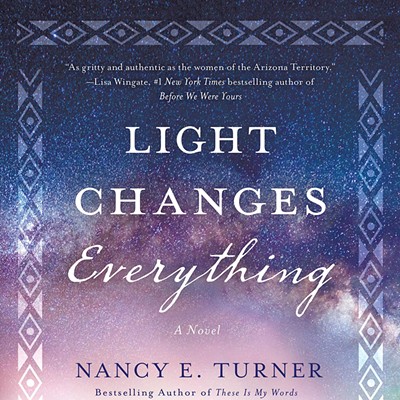In The Hesperides Tree, Briton Nicholas Mosley, the Whitbread Award-winning novelist known for intellectual fiction and experiments in style, has sifted a world of mythology, chance, fate and freedom through the perceptions of an inquisitive young man. A Lannan Foundation literary series selection, it's not to be missed if you like a little philosophical musing along with your coming-of-age tale.
The story opens with the narrator at a very innocent 17. His parents--not innocent, as he comes to discover--invite him along on an RV trip to Ireland, where Father scouts for a documentary film on unusually quickly evolving birds (read "motif"), and Mother checks on Irish inheritance (ditto). A misty coast, a boy rescuing an oil-soaked bird, a silent girl dancing along the wharf, and a shoot-out that he stumbles through nudge our hero to reconsider the course he has set for himself, and set us on the contemplative track of the book.
Although he's been accepted into a science degree program at university, it doesn't satisfy the boy's curiosities. He's put off by the mechanistic presumptions of science, so he transfers to literature. Even there, though, he finds himself disappointed by the prevailing notion that man cannot change. While writers can involve themselves in change, he observes, their characters act out predetermined human foibles or idiocy.
After a frustrating scholastic term, the narrator returns to the Irish village of the mysterious girl and the shoot-out, following the lead of 14th-century monks fleeing the religious upheaval of the Dark Ages. There, politics (deliberately ambiguous; the Irish troubles are a seemingly self-perpetuating reality of life, plus another opportunity to examine resistance to change), mythology and coming-of-age converge for the novel. The Hesperides of the title--guardians of the Greek Tree of Life at the westernmost parts of the world--are part human and part deity. (Some sort of mutant kicked up at another ill-fitting juncture in time?) The narrator and the girl enter their own Edenic experience on the hermits' island.
The idea that Mosley's protagonist is worrying is that of the role of man in an evolving world--the question that if the old gods and the old rules no longer feature in the lives of mankind, whether mankind itself has the freedom to influence the course of the new world.
Mosley sets up oppositions in the context of change: biology vs. literature, character foils, parent-child relations, physical vs. virtual reality. He even seems to test his character's literary complaint with his own novel.
The narrator distinguishes himself immediately as out of the norm--periodically calling himself "mutant"--born as he was with an unexplained skull fragility. Solitary, thoughtful, an adolescent who actually enjoys the company of his parents, he contrasts sharply with Edward, his best friend at university. Edward, who's flamboyant, ironic, and cracks words like a sadist's whip, roams a world of computer hackers set on destabilizing the Internet world his own father helped create. The protagonist's experience with computers pretty much limited to word processing and pornography-surfing, Edward introduces him to virtual versus physical reality, and involves him in an escapade in the process.
Gender roles and the place of the media in reporting/creating events come into play in the novel, as well. When the narrator impregnates a new-generation feminist lesbian, the possibility of abortion affords the opportunity to act on the notion that Nature selects, and to question assumptions about parenting. And when the media covering a political demonstration twists itself into its own story, Mosley suggests that we don't know what's life and what's reportage.
The Hesperides Tree makes an engaging read if you're willing to put a little effort into fiction, and can tolerate a bit of British eccentricity. A novel of ideas, it does a lot of talking, and its prose is sometimes fable-like undefined. Not for this novel, specific place-, time- or character-revealing detail (the source of this mysterious head-disease, for example, or the narrator's own name). You might need to begrudge a little suspension of disbelief: a kid who can find his way around the S&M sites should really be more in touch with the world. But the overall trip's worth a couple of questionable stops. Mosley has taken an admirable risk by testing the very literary question that plagues the narrator--of whether characters can effect change.
The novel will stay with you, the issue of finding sense in senselessness or order in chaos circling back, its unnamed narrator bobbing along, constant questions in tow. To quote his friend Edward (a propos of nothing, really), "Jerusalem artichokes." As everything is relative, call that praise.








